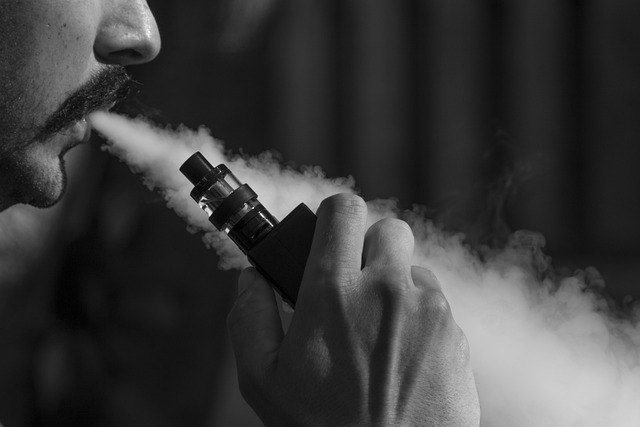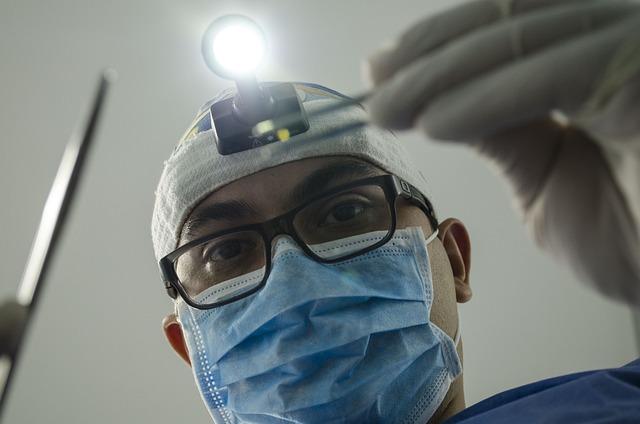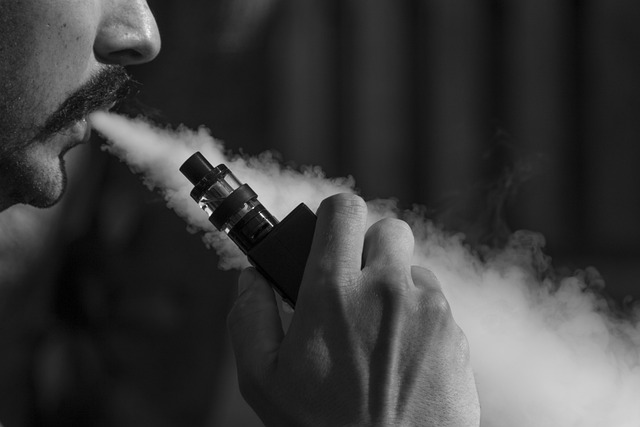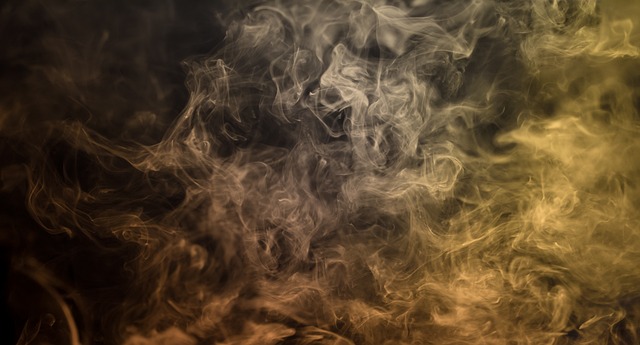Can U Vape After Getting Your Wisdom Teeth Removed? What to Know
If you’ve recently had your wisdom teeth removed, you’re likely no stranger to the cautious recovery process that follows. While navigating through the do’s and don’ts of post-surgery care, you may find yourself wondering if you can still indulge in your vape habit during this time. After all, vaping is often considered a less harmful alternative to smoking. In this article, we will delve into the question of whether you can vape after getting your wisdom teeth removed, providing you with the knowledge you need to make an informed decision and ensure a smooth recovery. So, let’s clear the air and find out what you should know.
1. The Importance of Understanding Vaping Restrictions After Wisdom Teeth Removal
After getting your wisdom teeth removed, it is crucial to understand the restrictions surrounding vaping. Ignoring these restrictions can lead to complications and hinder the healing process. Let’s delve into why understanding and following vaping restrictions is of utmost importance:
1. Impaired Healing: Vaping introduces harmful chemicals and substances into your mouth, which can impede the healing process after wisdom teeth removal. The suction created while vaping can dislodge blood clots, leading to a painful condition called dry socket. Moreover, the heat from the vapor can irritate the surgical site, causing inflammation and delaying healing.
2. Increased Risk of Infection: Wisdom tooth extraction creates open wounds in the mouth, leaving you susceptible to infections. Vaping introduces bacteria and other harmful substances into these wounds, increasing the risk of infection. Nicotine present in vape liquids can also constrict blood vessels, reducing blood flow to the surgical site. This, in turn, hampers the immune response and makes it harder for your body to fight off potential infections.

2. Exploring the Potential Risks Associated with Vaping After Wisdom Teeth Extraction
After undergoing wisdom teeth extraction, it is important to be cautious about certain activities that may pose potential risks to the healing process. Vaping, in particular, has gained popularity in recent years, but it is crucial to understand the possible implications it may have on your recovery. Here, we explore the potential risks associated with vaping after wisdom teeth extraction:
1. Dry Socket: One of the main concerns with vaping after wisdom teeth extraction is the increased risk of developing dry socket. Dry socket occurs when the blood clot that forms in the socket after the extraction is dislodged or dissolves prematurely, leaving the bone and nerves exposed. Vaping involves inhaling and exhaling vapor, which creates suction in the mouth. This suction can potentially dislodge the blood clot, leading to delayed healing and intense pain.
2. Irritation and Infection: Vaping devices often contain various chemicals and additives that can irritate the surgical site. The heat and vapor produced during vaping can cause dryness and discomfort, prolonging the healing process. Additionally, the mouth is more susceptible to infection after wisdom teeth extraction. Vaping introduces foreign substances into the mouth, increasing the risk of infection and potentially compromising the healing process.

3. Expert Advice: Can You Safely Vape After Undergoing Wisdom Teeth Extraction?
After undergoing wisdom teeth extraction, it is important to take certain precautions to ensure a smooth recovery. One common question that arises is whether it is safe to vape during this period. While vaping may seem like a harmless activity, it is crucial to consider the potential risks involved and the impact it can have on the healing process.
Here are some important points to keep in mind:
- Delayed healing: Vaping can delay the healing process and increase the risk of complications. The heat and chemicals produced by e-cigarettes can irritate the extraction site, leading to inflammation and prolonged recovery time.
- Increased chance of infection: Vaping introduces foreign substances into the mouth, which can increase the risk of infection. After wisdom teeth extraction, the open wounds are vulnerable to bacteria, and vaping can introduce harmful particles that may hinder the healing process.
- Dry socket: Dry socket is a common complication after tooth extraction. It occurs when the blood clot at the extraction site becomes dislodged or dissolves, exposing the underlying bone and nerves. Vaping can create suction in the mouth, potentially dislodging the blood clot and increasing the risk of developing dry socket.
Overall, it is best to avoid vaping after undergoing wisdom teeth extraction. While the temptation to vape may be strong, it is important to prioritize your oral health and allow your mouth to heal properly. If you have any concerns or questions, it is always recommended to consult with your dentist or oral surgeon for personalized advice.

4. Understanding the Healing Process: How Wisdom Teeth Removal Impacts Vaping
When it comes to the healing process after wisdom teeth removal, it’s important to consider how vaping can impact your recovery. While vaping may seem harmless, it can actually hinder the healing process and lead to complications. Here’s what you need to know:
1. Increased Risk of Dry Socket: Dry socket is a common complication after wisdom teeth removal, where the blood clot that forms in the extraction site becomes dislodged or dissolves. Vaping can create suction in the mouth, which can disrupt the blood clot and increase the risk of developing dry socket. This can cause severe pain and delay the healing process.
2. Irritation and Infection: Vaping involves inhaling and exhaling vapor, which contains various chemicals and particles. These substances can irritate the surgical site, leading to inflammation and potentially increasing the risk of infection. Additionally, the heat from vaping devices can delay the healing process by interfering with the body’s natural ability to repair itself.

5. Precautions and Recommendations for Vaping Post Wisdom Teeth Extraction
After undergoing wisdom teeth extraction, it is important to take certain precautions and follow recommendations to ensure a smooth and healthy recovery. Here are some guidelines to keep in mind if you vape:
- Avoid vaping for at least 48 hours: It is crucial to allow your mouth to heal properly before introducing any substances, including vapor, into the oral cavity. Vaping too soon can disrupt the blood clot formation, leading to a painful condition known as dry socket. Give yourself a minimum of 48 hours before resuming vaping.
- Choose a nicotine-free e-liquid: Nicotine can have negative effects on the healing process. To minimize complications, opt for a nicotine-free e-liquid during your recovery period. This will help reduce the risk of delayed healing, infection, and other potential complications.
- Adjust your vaping technique: While using your vaporizer, try to avoid creating suction or negative pressure in your mouth. This means taking gentle, shallow puffs instead of deep inhalations. The forceful action of sucking on the vape device can dislodge the blood clot and disrupt the healing process.
Remember, these precautions and recommendations are essential for your post-wisdom teeth extraction recovery. By following these guidelines, you can minimize the risk of complications and ensure a smooth healing process. If you have any concerns or questions, don’t hesitate to consult your dentist or oral surgeon for personalized advice.
6. Common Complications: Addressing Potential Issues When Vaping After Wisdom Teeth Removal
After undergoing wisdom teeth removal, it is important to be cautious when it comes to vaping. While vaping may be a preferred alternative to smoking, there are potential complications that can arise. To ensure a smooth recovery process, it is crucial to address and be aware of these potential issues.
One common complication that can occur when vaping after wisdom teeth removal is dry socket. This painful condition happens when the blood clot at the extraction site becomes dislodged or dissolves, leaving the nerves and bone exposed. To prevent dry socket, it is advised to avoid vaping for at least 72 hours after the procedure. The suction created during vaping can disrupt the formation of the blood clot and increase the risk of developing this complication. It is also recommended to avoid using e-liquids with high nicotine content, as nicotine can slow down the healing process and increase the chances of experiencing dry socket.
7. Final Thoughts: Making Informed Decisions Regarding Vaping After Wisdom Teeth Extraction
When it comes to making informed decisions about vaping after wisdom teeth extraction, there are a few key factors to consider. First and foremost, it is important to understand that wisdom teeth extraction is a surgical procedure, and it is essential to follow the post-operative instructions provided by your dentist or oral surgeon. These instructions may include restrictions on smoking or vaping, as the act of inhaling can potentially disrupt the healing process and increase the risk of complications.
Additionally, it is crucial to keep in mind that vaping involves inhaling potentially harmful substances into the lungs. While research on the long-term effects of vaping is still ongoing, studies have indicated that vaping can have negative impacts on oral health, such as dry mouth, gum inflammation, and an increased risk of oral infections. Therefore, it is prudent to err on the side of caution and avoid vaping, at least during the initial stages of wisdom teeth extraction recovery.
Frequently Asked Questions
Q: Can I vape after getting my wisdom teeth removed?
A: It is generally not recommended to vape immediately after getting your wisdom teeth removed.
Q: Why is it not advisable to vape after wisdom teeth extraction?
A: Vaping can hinder the healing process and potentially lead to complications.
Q: What are the risks associated with vaping post-wisdom teeth removal?
A: Vaping can cause dry socket, delayed healing, infection, and increased pain.
Q: How does vaping affect the healing process?
A: The act of vaping creates suction and negative pressure in the mouth, which can dislodge blood clots and disrupt the formation of new tissue.
Q: How long should I wait before vaping after wisdom teeth extraction?
A: It is recommended to wait at least 72 hours or until your dentist gives you the go-ahead before vaping.
Q: What should I do to promote proper healing?
A: To ensure proper healing, it is crucial to follow your dentist’s post-operative instructions, including avoiding vaping for the recommended duration.
Q: Can I switch to smoking instead of vaping?
A: Smoking, like vaping, is also not recommended after wisdom teeth removal due to similar risks associated with the act.
Q: Should I consult my dentist before vaping again?
A: Absolutely! It is essential to consult your dentist about your specific situation and receive personalized advice on when it is safe to resume vaping.
Q: Are there alternative nicotine delivery options that are safe after wisdom teeth removal?
A: Nicotine patches or gum may be safer alternatives to vaping or smoking during the healing period. However, it is still best to consult your dentist for guidance.
Q: What other activities should I avoid during the healing phase?
A: Along with vaping, it is recommended to avoid smoking, using straws, spitting forcefully, and consuming hot or hard foods during the initial recovery period.
Concluding Remarks
In conclusion, it is crucial to exercise caution and follow the advice of your dentist when it comes to vaping after wisdom teeth removal. While vaping may seem like a harmless alternative to smoking, the negative effects of inhaling nicotine and other chemicals can impede the healing process and increase the risk of complications. It is best to abstain from vaping until you have fully recovered, allowing your body to heal properly. Remember to prioritize your oral health and consult your dentist for personalized guidance. By taking these precautions, you can ensure a smooth and successful recovery from wisdom teeth removal.






